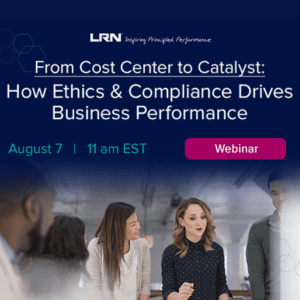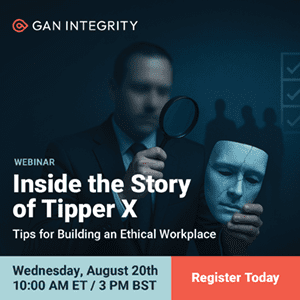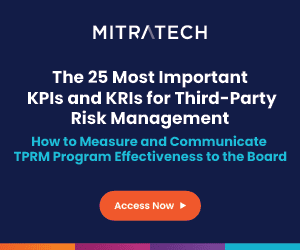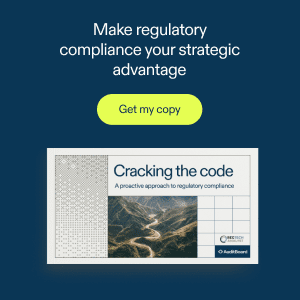Unethical behaviors are ever so costly to any organization, causing grievous harm as to even terminate the business; with the cost of remediating its effects ever more increasing. According to a recent report, for example, banks have racked up to GBP252bn in such costs over the last five years.
As bad as it sounds, the truth is that consequences of unethical behavior are not restricted to monetary losses alone, but could also result in reputational damage, compromise of commodity/service value and/or loss of customer confidence, amongst others.
Although the majority of fraud/corruption risks are peculiar to certain roles (based on opportunity, capability, rationalization and incentive), which makes them hard to uncover, one proven effective way of combating this menace and bringing cases of noncompliance to light is through the use of reporting mechanisms such as whistleblowing.
The Association of Certified Fraud Examiners (ACFE), in its 2016 “Report to the Nations on Occupational Fraud and Abuse” also reinforces this prowess of whistleblowing by stating, “As in previous years, tips were the most common detection method by a wide margin, accounting for 39.1 percent of cases.” Thus, tip-offs can prove to be invaluable, as they tend to be spot-on, allowing stakeholders to focus on and investigate specific issues that could have easily gone undetected.
Despite the obvious advantages of employing such, the adoption rate of whistleblowing mechanisms in some emerging economies still remains relatively low; while some organizations that have implemented such systems hardly realize its benefits due to under-utilization.
Although it may be argued whether the presence of whistleblowing mechanisms deters fraud (hence the low utilization exhibited), this reason cannot be substantiated for all organizations, particularly those in emerging economies. Rather, unethical behaviors persist, but are hardly reported.
Current Challenges of Whistleblowing
Deep-diving into root-causes of such negligence reveals a number of reasons for low adoption rates, including company culture, loyalty, tone at the top and/or even awareness of relevant reporting mechanisms or courses of action. Here, I discuss three main challenges attributable to whistleblowing mechanisms, policies and procedures.
1. A sense of non-effectiveness
First, anybody willing to make a whistleblowing report would expect such a report to be followed up with action. The social and cognitive process behind reporting cases of misconduct is one that sometimes requires careful consideration, as people sometimes struggle to find the courage to make such reports. If, therefore, someone makes a report and management does not address the issue, the person could feel a sense of disregard from management or that the system is non-effective. Even more discouraging is repeated inaction from management on subsequent reports, leading to a loss of confidence in such initiatives.
It is, therefore, important for management to imbibe a feedback mechanism for reported cases. In some circumstances, the non-responsiveness could be as a result of the stakeholder making a personal complaint about the way they were treated or being aggrieved with the outcome of a process, rather than reporting an incident of ethical concern, as this is a common misconception about such systems. Management thus needs to sensitize such stakeholders with consistent training and engagement on this difference and other circumstances.
2. Continuous anonymity
Second, whistleblowers are prone to abuse and/or stigmatization, especially if the alleged party is of a senior role in the organization’s hierarchy. For this reason, a number of reporting mechanisms try to incorporate “anonymous reporting” as an option. Traditionally, whistleblowing involved face-to-face discussions and telephone calls, with little or no opportunity for anonymity. The effective management of the few anonymous tips received also had its flaws, as omissions and misunderstandings could easily arise from whistleblowing reports, thus requiring investigators to either leave the report uninvestigated or try to unravel the identity of the whistleblower for further interviewing. The latter could leave the whistleblower vulnerable to abuse.
In recent times, however, the whistleblower is availed with a variety of channels (e.g., email, fax) for airing their concerns. External (third) parties also now offer the service of receiving whistleblowing reports on an organization’s behalf. Such services would give the whistleblower more confidence about his confidentiality and protection in his workplace.
3. Cashing in on misconduct
Third, a number of regulators these days are tightening their enforcement and encouraging stakeholders to report incidents of alleged misconduct and noncompliance for a percentage of fines. Apart from the monetary incentives, anybody’s preference of this option can be further attributed to the uncertainty of the fate of the organization after detection, along with previously stated challenges of confidentiality, stigmatization and lack of action for reported cases. Such action can create reputational damage for any organization caught in the crosshairs of the regulators.
As a result, it is imperative for organizations to implement real-time internal reporting mechanisms that whistleblowers can utilize at any point in time. Organizations should also be well-equipped with procedures and policies to guide whistleblowing and whistleblowers and have a culture that promotes and (where possible) incentivizes whistleblowing so as to ensure that the organization is aware of misconduct and retains control of subsequent actions/responses.
Overcoming Whistleblowing Challenges in the Digital Age
As previously emphasized, stakeholders undergo a cognitive and social process when deciding to report cases of misconduct. This decision, just like consumer behavior, is highly volatile and can change at any time. Certain types of misconduct could also require urgent intervention, depending on the severity. If unreported, consequences of unethical behavior can accumulate over time, up to the point of ruining the business. Therefore, mechanisms should be readily available and adaptable to whistleblowers’ “mood” for reporting.
Luckily, we are in the digital age, and the challenges discussed can easily be overcome using digital technologies. In the light of all stated, a fitting resolution would be to implement or subscribe to the use of a responsive online whistleblowing system.
Apart from the obvious advantages (such as 24/7 availability, accessibility and mobility) that can be attributed to online systems, to cater to the challenges previously stated in line with the proposed recommendations, such a system should provide the following options to whistleblowers and management:
- Anonymity: The system should protect the whistleblower’s identity by providing the option of receiving whistleblowing reports anonymously.
- Feedback provision: The system should assign identification codes to reported cases so as to track them, update the status, provide feedback and request further information.
- Reporting: The system should allow administrators to generate custom reports of cases (e.g., for a date range).
- Comprehensiveness: The system should provide the option of uploading electronic formats of evidence to support reported cases.
- Inaction: The system should be able to track statuses of cases and provide management with the same on a timely basis.
- Compliance: The system should be able to automatically generate alerts for shortfalls and reminders for periodic reviews.
- Mobility: The system should be responsive and adaptable to any device the whistleblower might want to use to access it.
- Flexibility: The system should provide the flexibility of being hosted on premises or in the cloud.
Earlier this year, the French Finance Minister presented a bill to the French cabinet with provisions for whistleblower protection and stricter anti-corruption laws. Also, China moved to tighten its anti-corruption laws. As it stands, the world economies seem to be aligning their stance on the fight against unethical behaviors and misconduct. Therefore, the prompt implementation of such cost-effective online whistleblowing systems would help prepare organizations for such strict legislation and minimize this risk of noncompliance.
Although whistleblowing systems are good detection mechanisms on their own, their full potential is only reached when several other secondary objectives are met. Thus, any effective whistleblowing mechanism needs to be complemented by an effective whistleblowing program that includes awareness, training, reviews, policies, etc.
In all, when it comes to reasons not to exhibit unethical behavior, the feeling that a perpetrator will definitely get caught and be brought to book surpasses the fact that he will get punished only if caught; hence, appropriate proactive detection mechanisms such as whistleblowing should be actively sought, implemented and sustained.



 Jude Okosun is a Certified Fraud Examiner and a seasoned IT professional. He has experience in both public and private sectors and across several diverse industries and roles covering forensic technology, business integrity and corporate compliance functions. Connect with Jude at
Jude Okosun is a Certified Fraud Examiner and a seasoned IT professional. He has experience in both public and private sectors and across several diverse industries and roles covering forensic technology, business integrity and corporate compliance functions. Connect with Jude at 








